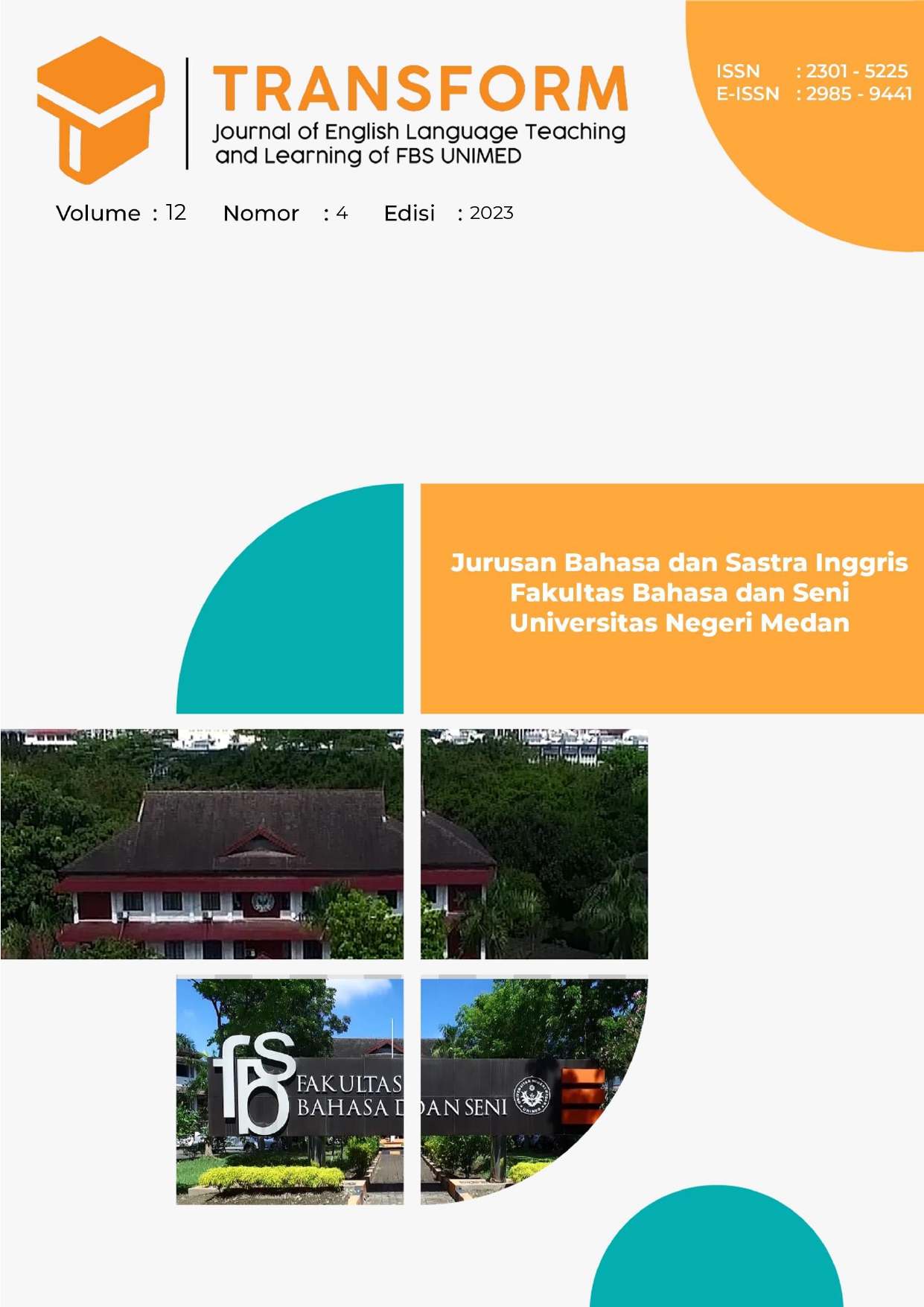A Semiotics Analysis of Characters in Spongebob Movie: Sponge on The Run (2020)
DOI:
https://doi.org/10.24114/tj.v12i4.57581Keywords:
Semiotic, Character, Characterization, SpongeBob Movie, Sponge on the RunAbstract
This study is about discusses semiotic meaning of the characterizations in SpongeBob Movie: Sponge on the Run (2020) using Roland Barthes' theory. The data was taken from screenshots of the characters that contained semiotic meaning. The researcher found 64 pictures that have been analyzed there were 10 data from SpongeBob, 9 data from Patrick, 8 data from Mr.Krabs, 8 data from Squidward, 6 data from Plankton, 6 data from Sandy, 4 data from Gary, 7 data from King Poseidon, 4 data from Sage and 2 data from Otto. This research uses descriptive qualitative method. The results of this study state that the type of semiotics by Barthes can be used to explain the characters meaning of semiotics contained in it. The type of Barthes Semiotics in this film also has different meanings in describing something according to the action or behavior contained in the film scene.Downloads
Published
2024-04-25
Issue
Section
Articles
License
Copyright (c) 2024 Novia Anggita Hasibuan, Sisila Fitriany Damanik

This work is licensed under a Creative Commons Attribution-ShareAlike 4.0 International License.
Authors who publish with this journal agree with the following terms:
- Authors retain copyright and grant the journal right of first publication with the work simultaneously licensed under a Creative Commons Attribution License that allows others to share the work with an acknowledgment of the work's authorship and initial publication in this journal.
- Authors are able to enter into separate, additional contractual arrangements for the non-exclusive distribution of the journal's published version of the work (e.g., post it to an institutional repository or publish it in a book), with an acknowledgment of its initial publication in this journal.
- Authors are permitted and encouraged to post their work online (e.g., in institutional repositories or on their website) prior to and during the submission process, as it can lead to productive exchanges, as well as earlier and greater citation of published work (See The Effect of Open Access).
- This work is licensed under a Creative Commons Attribution-ShareAlike 4.0 International License.

This work is licensed under a Creative Commons Attribution-NonCommercial-ShareAlike 4.0 International License.



